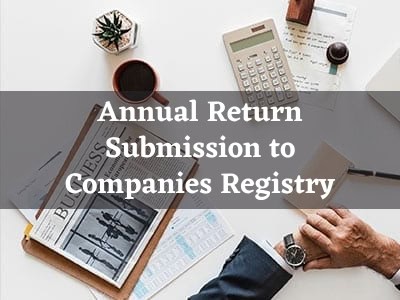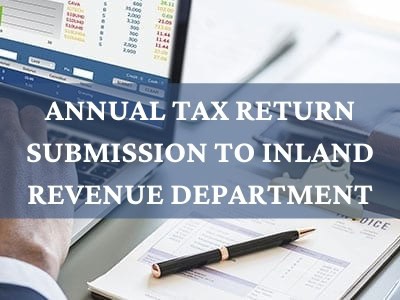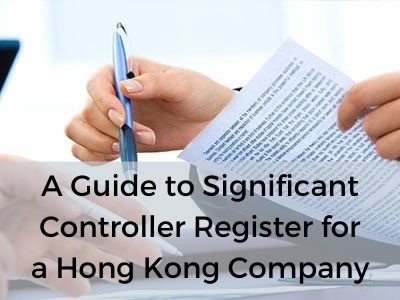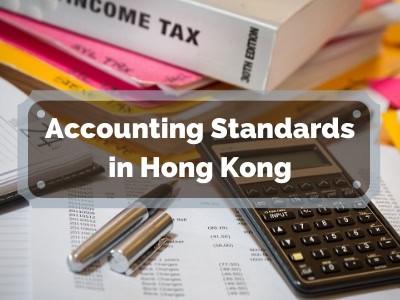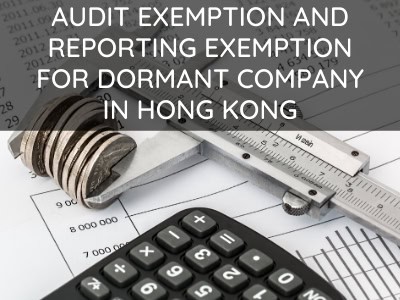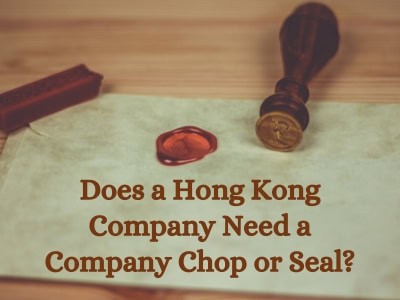This post is also available in:
繁體中文 (Chinese (Traditional))
简体中文 (Chinese (Simplified))
Hong Kong attracts plenty of foreign investors each year who are ready and eager to establish a base of business in this thriving business hub. It is very important for these investors to understand and know the corporate compliance regulations and requirements in Hong Kong during both the pre-incorporation and post-incorporate process of setting up a business.
All Hong Kong companies’ investors must comply with the requirements in each of the following areas listed below within the stipulated timeline for action / statutory filings as follows:
| No. | Description | Timeline |
| 1 | Appointment of First Company Secretary | Upon submission of the incorporation form to CR
|
| 2 | Appointment of First Auditor | Companies may appoint its first auditor any time before the first AGM which should be held 18 months from the date of its incorporation
|
| 3 | Location of Registers and Company Records
|
Within 15 days after the records are first kept at those places (unless they are kept at registered office address)
|
| 4 | Financial Year End | In accordance with Hong Kong company law, the first financial period from the date when your company was incorporated and the date of your financial year-end must not exceed 18 months.
The fiscal year or financial year end for a Hong Kong company does not necessarily need to be the same as its incorporation date. Companies have the flexibility of choosing any date they want as their financial or fiscal year end. Newly incorporated companies can fix any date they prefer as the fiscal year end date.
|
| 5 | Lodging of Annual Return (private limited company) with CR
(applies to all companies except company which has declared itself as dormant company)
|
The Annual Return Submission has to be filed within 42 days after the anniversary of the date of incorporation every year.
|
| 6 | Notification of Commencement of Business
|
Within 1 month after commencement of business.
|
| 7 | Renewal of Business Registration Certificate (“BRC”) | Depending on the valid period of the BRC, it should be renewed every year or every 3 years.
|
| 8 | Annual Tax Return Submission to IRD | IRD will issue Tax Return filing notifications to companies on the 1st of Apr every year. The tax submission deadline depends on the financial year end date the company choose:
Y/E:1 Apr to 30 Nov: Due date: 2 May next year
Y/E: 1 to 31 Dec: Due date: 15 Aug next year
Y/E 1 Jan to 31 Mar: Due date: 15 Nov same year, Extended to 31 Jan next year for loss cases.
For the newly incorporated companies, tax return will be issued on the 18th month of the incorporation date. The tax submission deadline is within three months from the date of issue of tax return. |
| 9 | Holding the First Annual General Meeting (AGM) | In the event that the company’s accounting reference period is the company’s first accounting reference period and it exceeds 12 months, the company’s AGM must be held within the following period:
a) For company limited by guarantee or a private company that is not a subsidiary of a public company, the AGM must be held 9 months after its first anniversary or 3 months after accounting reference period ends (whichever is later). b) For any other company, the AGM must be held 6 months after the company’s first anniversary of the company’s incorporation; or 3 months after the accounting reference period ends (whichever is later). |
| 10
|
Hold subsequent Annual General Meeting (AGM)
(applies to all companies except company which has declared itself as dormant company) |
A company’s AGM must be held within the following period for each financial year:
a) 9 months after its accounting reference period ends – this applies to a company limited by guarantee or a private company that is not a subsidiary of a public company. b) 6 months after its accounting reference period ends – this applies to any other company. |
| 11 | Preparation of Financial Statements
A company can be exempted from audit if the company has declared itself as a dormant company by passing a relevant special resolution and submitting necessary documents to the Registrar, on the grounds that the company has no accounting transactions during the financial year.
|
Under the Hong Kong Companies Ordinance, the audit of financial statements is required for all companies except dormant companies. This audit requirement is also applicable for taxation purposes, as companies incorporated in Hong Kong must attach the audited financial statements for filing of Profits Tax Return to the Inland Revenue Department.
These Audited Financial Statements must have a valid signature from a Certified Public Accountant (“CPA”). |
Other Ad Hoc Changes After Incorporation
(please approach our 3E Team for more information on the job processes)
| No. | Description | Timeline |
| 1 | Appointment/ Cessation of Company Secretary and Director
|
Within 15 days after the change
|
| 2 | Change of Company Secretary’s and Director’s particulars
|
|
| 3 | Change of Registered Office Address
|
|
| 4 | Change of Location of Registers and Company Records
|
|
| 5 | Change of Auditor
|
|
| 6 | Change of Company Name
|
|
| 7 | Amendment of Articles of Association
|
|
| 8 | Declaration of Dormant Status
|
|
| 9 | Cessation of Dormant Status
|
|
| 10 | Allotment of Shares
|
Within 1 month after the change
|
| 11 | Alteration of Share Capital (e.g. Increase of paid-up capital without allotment of new shares)
|
|
| 12 | Redenomination of Share Capital
|
|
| 13 | Registration of Mortgage and Charges
|
|
| 14 | Change of Business Nature
|
|
| 15 | Transfer of shares
|
Please approach our 3E Team for more information on the timeline and job processes |
| 16 | Release of Mortgage and Charges
|
|
| 17 | Alteration/ Removal of Company’s Objects (Memorandum of Association) – in most cases, applicable to companies incorporated before 3 March 2014 under previous Companies Ordinance Cap. 32
|
|
| 18 | Deregistration of Private Limited Company
|
|
| 19 | Change of Financial Year End Date
|
We provide free consultations to our clients. Feel free to call us today for any clarifications you need regarding the corporate compliance requirements.
Annual Return Submission to Companies Registry
The Companies Ordinance has mandated that all locally incorporated private limited companies must file their Annual Returns with the Companies Registry. Read more
Annual Tax Return Submission to Inland Revenue Department
In Hong Kong, both locally incorporated and foreign companies (an incorporated subsidiary or registered branch) are required to file annual return with the Inland Revenue Department (“IRD”). Read more
Business Record Keeping in Hong Kong
Beginning 1 March 2018, new changes were made to the Anti-Money Laundering and Counter-Terrorist Financing (Financial Institutions) (Amendment) Bill 2017. Read more
A Guide to Significant Controller Register for a Hong Kong Company
What is a significant controller for a hong kong company? This individual would be someone who has significant control over the company. The SC could be any one of the following entities…Read more
Accounting Standards in Hong Kong
The accounting standards in Hong Kong are referred to as the Hong Kong Financial Reporting Standards (HKFRS). Read more to know these principles. Read more
Audit Exemption and Reporting Exemption for Dormant Company in Hong Kong
A dormant company will be exempted from complying certain requirements as stipulated in the Ordinance, which will, in turn, enables an inactive company to be retained at a minimum maintenance cost. Read more
Hong Kong Director Duties and Responsibilities
Directors are responsible for ensuring that the company is compliant with legal obligations and regulatory requirements. Therefore, Directors must keep informed of the happenings within the company. Read more
Hong Kong’s Data Privacy Law
Hong Kong, a country that always stays ahead and in-trend no matter how fast the technology evolves, has been one of the first Asia countries to enact a data privacy law. This article provides an overview of data privacy law in Hong Kong, including the relevant legislation, governing authorities, key definitions and Six Data Protection Principles. Read more
Annual General Meeting (“AGM”) in Hong Kong
An annual general meeting (“AGM”), as the name implies, is a statutory requirement where a company’s directors or shareholders will gather in this mandatory yearly meeting to discuss the company’s financial report, business performance or strategy. Read more
Does A Hong Kong Company Need a Company Chop or Seal?
Executing legal documents and contracts are a very common occurrence in a business. But does your Hong Kong company need a company chop or company seal to get it done? Or will a signature suffice? Read more
Electronic Signature or Digital Signature Requirements in Hong Kong
Electronic signatures and digital signatures are among the multiple signature forms recognised in Hong Kong as part of the Electronic Transactions Ordinance Act (ETO). Hong Kong’s ETO recognises some of the multiple signature forms used by private sector businesses. In all official electronic communication with the government, the ETO retains the digital signature requirements. Read more
Changed Business Address: Don’t Forget To Update
Hong Kong is a place of business haven. More companies or organizations are set up and registered daily. Hence, entrepreneurs require ample business operation space that befits their enterprise. Thus, you are forced to change your business address when the need arises — the most challenging part of changed business address in informing all relevant parties about your moved business place. Read more
Transfer of Shares in Hong Kong Company
The transfer of shares occurs when a shareholder in a company sells or gifts his/her shares to another new or existing shareholder. For Hong Kong companies, the procedures for a transfer of shares need to follow certain conditions. Read more
Competition Ordinance
Hong Kong’s Competition Ordinance (the Ordinance) aims to extend competition protection towards businesses on par with global standards. A fair and competitive free market economy is the ideal arena for innovative and evolutionary commerce. Read more


